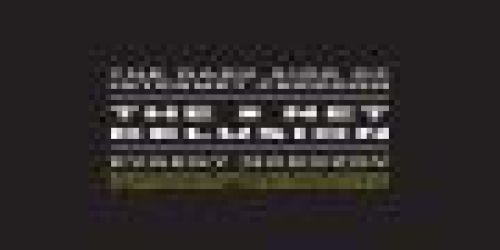
The Net Delusion
The Dark Side of Internet Freedom
کتاب های مرتبط
- اطلاعات
- نقد و بررسی
- دیدگاه کاربران
نقد و بررسی

December 1, 2010
In his debut, Foreign Policy contributing editor Morozov pulls the Internet into sharp focus, exposing the limits of its inner logic, its reckless misuse and the dangerous myopia of its champions.
The author provides a damaging assessment of domestic and foreign Internet policy that remains entertaining despite its dour warnings. As the Internet becomes more widely available in remote corners of the world, writers Morozov, it becomes harder to regulate. Even without a blueprint or common grammar, policymakers, social critics and social scientists tend to embrace online communication as an emancipatory political mechanism that promotes democracy. Everywhere, commentators focus on the amazing revolutionary potential of the Internet to broadcast political struggle, rather than the political struggle itself. In 2009, thousands of Iranians took to the streets of Tehran to protest what they saw as the fraudulent re-election of Mahmoud Ahmadinejad. Armed with smartphones and Twitter accounts, protestors were able to reach the world in a matter of minutes, and images of police brutality quickly reached the Internet-surfing world via Facebook and Twitter. When the initial exuberance behind the "Twitter revolution" waned, the Iranian government used the same social-networking sites, even YouTube, to identify and arrest would-be insurrectionists. As the Internet proves ineffective in the struggle for global democratic revolution, it expertly transforms entire populations into passive consumers of commercial mass media, revealing one of the most fundamental of political problems: motivation. Assuming that the Internet can be regulated, how can it promote global democracy while the world's connected millions are surfing YouTube for funny cat videos? It's a hopeless battle, but despite the immeasurable barriers to Internet-driven democracy, Morozov still believes the Internet can be used to promote democracy, as long as new policies are unbiased, realistic and cognizant of the connections between the Internet, local political contexts and foreign-policy agendas. Easier said than done.
A serious consideration of the online world that sparkles with charm and wit.
(COPYRIGHT (2010) KIRKUS REVIEWS/NIELSEN BUSINESS MEDIA, INC. ALL RIGHTS RESERVED.)

January 1, 2011
Morozov (contributing editor, Foreign Policy), currently a visiting scholar at Stanford University, here examines the evolving role of the Internet in activism, dissent, and authoritarian regimes. He investigates the impact of a range of media on social revolution and activism from television in East Germany to Twitter during Iran's Green Revolution, intertwining that analysis with discussion of the ways governments are able to use the Internet for surveillance of political activity, propaganda dissemination, and censorship. In his complex examination, he analyzes the effect of the proliferation of available entertainment and access to consumer goods on the potential for political activity, arguing that opening societies to further consumerism and to Western cultural media has in some ways deterred political activism. Morozov's argument that the West conflates democratization with consumerism uncovers a critique of the West here for its complacent belief that the Internet and supposed freedom of information is a certain pathway to democratization. VERDICT Highly recommended and likely to be popular with political observers, policy wonks, activists, information junkies, and academics. [See also The Offensive Internet, reviewed on page opposite.--Ed.]--Candice A. Kail, Columbia Univ. Libs., New York
Copyright 2011 Library Journal, LLC Used with permission.

























دیدگاه کاربران